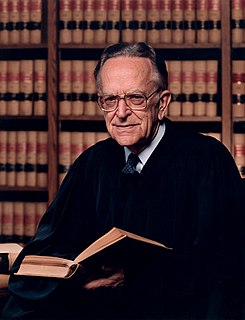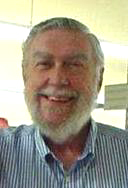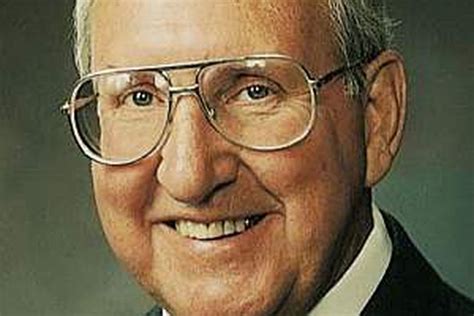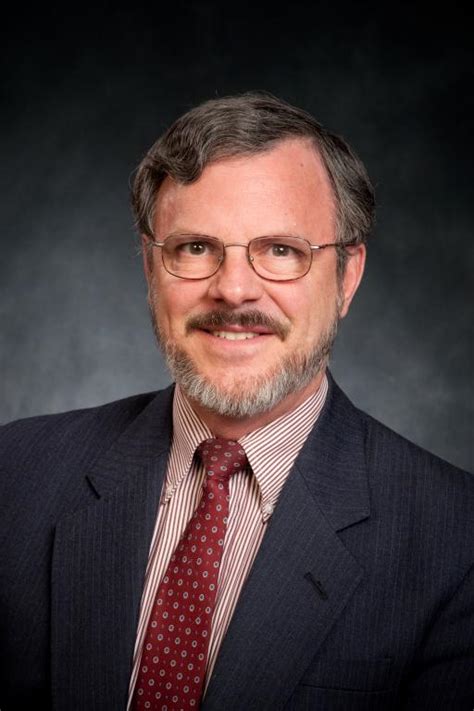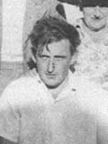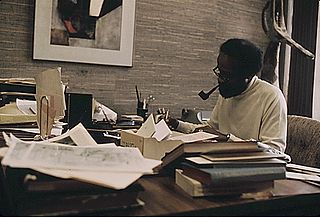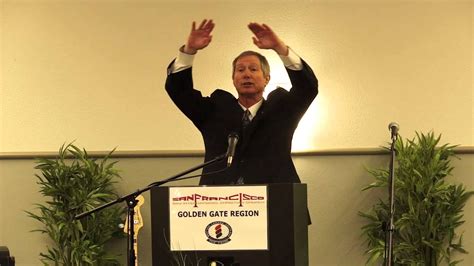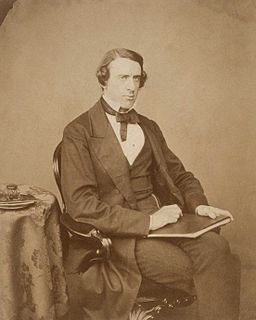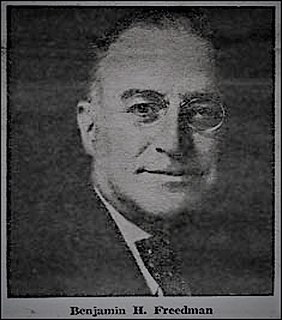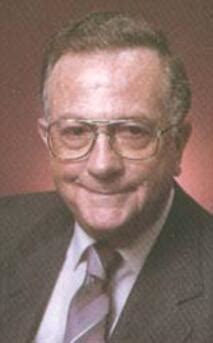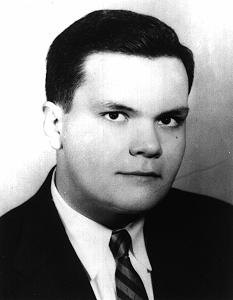Top 1200 Christian Theology Quotes & Sayings - Page 18
Explore popular Christian Theology quotes.
Last updated on April 22, 2025.
We need not resolve the difficult question of when life begins. When those trained in the respective disciplines of medicine, philosophy, and theology are unable to arrive at any consensus, the judiciary, at this point in the development of man's knowledge, is not in a position to speculate as to the answer.
The Christian is free from all other human beings. He does not have to live over against others, controlled by their actions and responses. Rather, he lives according to Christ's commands. This is Christian freedom. It is a freedom unknown by others. It is not just when others do the things that we like that we act properly toward them; we are free to do good even when they don't because our actions are not dependent on their responses. It is the Lord Christ when we serve!
One can understand nothing of Christ without the mystery of the Trinity, nothing of the Church without faith in the divinity and humanity of Christ, nothing of the sacraments without the bridal mystery between Christian life without Christian faith. Thus, the present sermons revolve around the same center--the inexhaustible mystery of the one indivisible faith.
One of the many burdens of the person professing Christianity has always been the odium likely to be heaped upon him by fellow Christians quick to smell out, denounce and punish fraud, hypocrisy and general unworthiness among those who assert the faith. In ruder days, disputes about what constituted a fully qualified Christian often led to sordid quarrels in which the disputants tortured, burned and hanged each other in the conviction that torture, burning and hanging were Christian things to do.
It is doubtful that the dissection of living animals and plants could be done by those who believe them to be holy. A pantheist would not view trees as so many board feet in the manner a Christian would. A pantheist would be less likely to measure the number of acre feet coming over a waterfall than his Christian descendent, centuries later who had become a scientist. That which is sacred would be handled with a certain reverence.
My beloved young friends, determine to serve one another. Opportunities for Christian acts of service do not always come at convenient times. Listen to the spirit when your flesh is weak. For truly the Master said, "Inasmuch as ye have done it unto one of the least of these my brethren, ye have done it unto me" (Matt. 25:40). The blessings are tenfold when we do those good, kindly acts of Christian service when it is inopportune or not convenient.
Is a Christian- one who communicates daily with the Creator- to divorce himself from the things God created and intended man to have, and which demonstrate the fact that man has been made in the image of God? In other words, are we who have been made in the image of our creator to be less creative than those who do not know the Creator? The Christian should have more vividly expressed creativity in his daily life.
America's Christian conservative movement is confronted with this divide: small-government advocates who want to practice their faith independent of heavy-handed government versus big-government sympathizers who want to impose their version of 'righteousness' on others through the hammer of law.... Our movement must avoid the temptations of power and those who would twist the good intentions of Christian voters to support policies that undermine freedom and grow government.
I was born into a Christian household, in a parsonage in fact, so I grew up in sort of a missionary atmosphere but it was an environment which involved both the traditional religions as well as the Muslim religion, so we were exposed to all the various facets of faith, micro cultures which existed within those beliefs, and even though I've lost whatever Christian faith was drummed into me as a child, I still maintain very good relationship with all the various religions.
Classic nineteenth century European imperialists believed they were literally on a mission. I don't believe that the imperialists these days have that same sense of public service. They are simply pirates. Yes, there are fundamentalists, Christian fundamentalists, who appear to be in charge of the White House at the moment, but they are very different from the Christian gentlemen who ran the British Empire and believed they were doing good works around the world. These days it's about naked power.
You'll be riding along in an automobile. You'll be the driver perhaps. You're a Christian. There'll be several people in the automobile with you, maybe someone who is not a Christian. When the trumpet sounds you and the other born-again believers in that automobile will be instantly caught away - you will disappear, leaving behind only your clothes and physical things that cannot inherit eternal life. That unsaved person or persons in the automobile will suddenly be startled to find the car suddenly somewhere crashes.
I think it's important to realise that what happens in Neo-Platonism beginning with Plotinus and Porphyry and then going on for the next several centuries, is a real kind of contest for the ideas and convictions of the intelligentsia of the later Roman Empire. So that you have Christians slowly converting more and more powerful people until of course actually Constantine and then other emperors after him, become Christian, and the empire becomes a Christian empire rather than Pagan empire.
I taught what was clear in Acts 11:26: SAVED = CHRISTIAN = DISCIPLE, simply meaning that you cannot be saved and you cannot be a true Christian without being a disciple also. I taught that, to be baptized, you must first make the decision to be a disciple, and then be baptized. I taught that their baptism was invalid because a retroactive understanding of repentance and baptism was not consistent with Scripture.
The history of the world for the past several centuries and current events at home and abroad confirm the existence of such a conspiracy (to destroy Christianity and obtain global power). The world-wide net-work of diabolical conspirators implements this plot against the Christian faith while Christians appear to be sound asleep. The Christian clergy appear to be more ignorant or more indifferent about this conspiracy than other Christians ... It seems so sad.
The Bible is one long story of God meeting our rebellion with His rescue, our sin with His salvation, our guilt with His grace, our badness with His goodness. The overwhelming focus of the Bible is not the work of the redeemed but the work of the Redeemer. Which means that the Bible is not first a recipe for Christian living but a revelation book of Jesus who is the answer to our un-Christian living.
Such then in number and importance are the precious ties belonging to the Christian name which keep a believer in the Catholic Church, as it is right they should ... With you, where there is none of these things to attract or keep me... No one shall move me from the faith which binds my mind with ties so many and so strong to the Christian religion... For my part, I should not believe the gospel except as moved by the authority of the Catholic Church.
In Acts 14:1, we are told, "At Iconium Paul and Barnabas went as usual into the Jewish synagogue. There they spoke so effectively that a great number of Jews and Gentiles believed." This is what should be sought in Christian schools, not just teaching, but effective teaching. Christian content alone is insufficient. It must be presented in a certain way, and that way cannot be reduced to technique. Nevertheless, God has graciously made it possible to bring people the truth by how the truth is presented.
The nature of men and of organized society dictates the maintenance in every field of action of the highest and purest standards of justice and of right dealing.... By justice the lawyer generally means the prompt, fair, and open application of impartial rules; but we call ours a Christian civilization, and a Christian conception of justice must be much higher. It must include sympathy and helpfulness and a willingness to forego self-interest in order to promote the welfare, happiness, and contentment of others and of the community as a whole.
The Christian view that all intercourse outside marriage is immoral was, as we see in the above passages from St. Paul, based upon the view that all sexual intercourse, even within marriage, is regrettable. A view of this sort, which goes against biological facts, can only be regarded by sane people as a morbid aberration. The fact that it is embedded in Christian ethics has made Christianity throughout its whole history a force tending towards mental disorders and unwholesome views of life.
